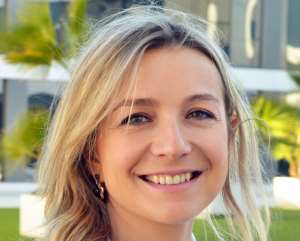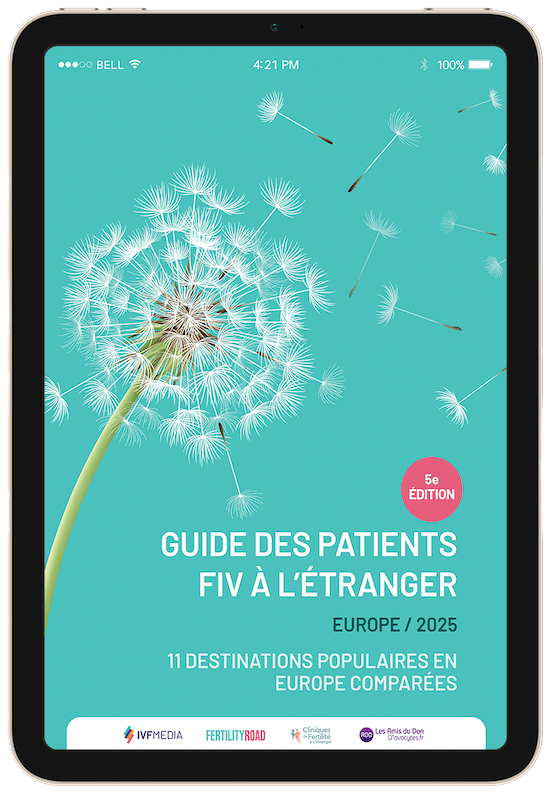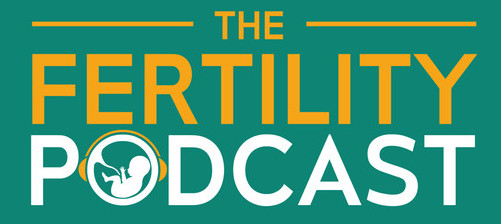Interview with Vita Reproductive Medicine

We are pleased to chat to Sonia Esteve, the Clinical Director at VITA Reproductive Medicine.
1) Spain is extremely popular with UK and Irish patients for fertility treatment. Why do you think that is?
There are various reasons. Spain is recognised for the quality and advances in the treatment offered and their success rates. Price is an important factor with prices generally being more affordable for both the treatment itself and tests. Egg donation differs from the UK due to the laws in Spain, all donation is totally anonymous. Couples would need to make a decision prior if they are happy with an anonymous donation but this tends to be the preferred decision. The fact the donation is not anonymous in the UK can cause waiting lists for egg donation. In Spain generally there are no or very short waiting lists.
2) Why should patients come to your clinic in Spain and not anywhere else? What makes it unique?
The VITA clinic forms part of the IMED hospital group, with 3 hospitals in Elche, Valencia and Benidorm and 2 polyclinics, however the main fertility centre and laboratory is located in the IMED Levante Hospital in Benidorm.
Being located within a hospital offers our patients the security and confidence of being in a hospital environment with all the facilities necessary at hand. All tests can be carried out within a day and if a patient after investigation needs any further gynaecological treatment in preparation prior to a cycle this can easily be carried out at the hospital.
VITA is small and the attention is very much personalised for each patient and we are there to help at any time the patient wishes to contact us. Our team is accessible and always available to address any questions or concerns they may have about our treatments.
First consultations are free of charge and we do not charge extras for ultrasounds scans on each visit to the doctor.
3) Travelling abroad for fertility treatment is quite an ordeal. How does your clinic make it easy for patients? What support is available?
Our clinics are easily accessible as the nearest airport is Alicante with regular direct flights from all over Europe and connecting flights if travelling further afield.
VITA at the IMED Levante hospital is also lucky to be located on the outskirts of a holiday destination such as Benidorm, however, there are many other resorts nearby to choose from such as Altea or Albir too. We offer advice on the nearest local hotels and apartments and offer hospital transport from the airport on arrival. Then on arrival, we are here to meet and welcome our patients at the hospital so that they feel at ease from the beginning.
For non-English speakers, we also have a team of translators to help (German, Dutch, French, Russian, Norwegian, and Swedish if necessary).
Staying in a holiday destination has the added advantages of offering plenty of holiday activities or relaxation and in this area, there is a special microclimate with mildly warm temperatures all year round to make the most of a visit. During a cycle of treatment little time is spent in the clinic, so our patients can enjoy a well-deserved break, stress free from their own home daily routine and for those who do not want friends and family to know about the treatment it is ideal for them to fly over as if they were on holiday and relax.
4) Your clinic specialises in ROPA or Shared Motherhood – a treatment is aimed at lesbian married couples. Why should patients come to your clinic for this treatment?
Our shared motherhood programme is ideal for same-sex married female couples, where both partners participate in the enjoyment of the creation and birth of their child. One partner donates their egg to the other partner which is fertilised with sperm donation and this partner carried the baby until birth.
This treatment is carried out without prejudice and we help to make their dreams a reality
5) Can you explain a little more about the egg donation program that you run? How do you match up patients and donors? How many trips are required? How successful has it been?
We have various donors available, whilst most are Caucasian, we do have some donors from other ethnic races. To select donors we follow the recommendations of the European Society of Human Reproduction and Embryology ESHRE and the requirements of the law 14/2006 on Assisted Human reproduction techniques and the Royal Decree 1301/2006 on standards of quality and safety in gamete donors.
During the selection process VITA carries out a personal interview with each donor prior to determine their emotional stability, absence of depression and anxiety and her unselfish commitment and confidentially.
Medical and family history is assessed and a gynaecological examination is carried out by our specialist.
Full general analytical tests are also carried out and also a check for infectious disease plus genetic studies for Fragile X syndrome screening, Cystic fibrosis screening and karyotype.
VITA has an exclusive donor for each cycle (the donor is not shared during same donation period with another recipient as is in some other clinics).
VITA works with FRESH egg donors (unless there is a specific reason not to do so and agreed with the patient)
As previously mentioned there is total anonymity of the donor according to Spanish Law and the couple and future child only having the right to know the blood group, age and race of the donor. We also always try to match the phenotype of the donor as closely as possible to the receiving patient.
VITA guarantee a minimum of 8 eggs though is normally more. The number of trips depends on the patient.
For egg donation, it is possible to just travel on one trip for 1 week, providing that prior to this either a skype or telephone consultation takes place with the medical team and the patient can carry out all relevant tests necessary in their home country and obtain the relevant medication.
We prefer our patients travel out for a day or to meet them in person prior to treatment as it is also easier to carry out all testing here and see how the patient is, however, we understand this may not always be possible, so one trip can suffice.
Egg donation has a success rate of 65% on one cycle and an accumulative rate of 85%
6) Finally, since your clinic is in Benidorm, it must be very attractive to British patients who are concerned about language issues since many people from the UK come here on holiday. What does Benidorm have to offer apart from the weather and the sun?
As mentioned before Benidorm´s microclimate and south-facing superb urban beaches converts it into a destination open all year round. There are 5 beaches and the resort is diverse depending on the area you stay to suit all tastes and all pockets including three 5 star hotels.
There are quiet hideouts on the Poniente (sunset) beach or you can stay on the livelier Levante (sunrise ) beach where the tourism infrastructure is more abundant. Snorkeling and scuba diving is excellent especially around Benidorm Island, however for the less sporty a boat trip can be taken to the island instead with a visit on a glass-bottom boat. There are 2 golf courses and plenty of land and water sports.
To the north there is the Sierra Helada mountain a protected nature area with walking and cycling routes and fabulous views across the bay, though you do not have to be fit as bicycles with motors can he hired. The cliff like scenery is spectacular. Benidorm is surrounded by mountains and just a few minutes’ drive away you can be in the countryside. The capital city Alicante is a short 30-minute drive away and close by is the quaint artisans village of Altea or may try further afield to the capital of the region Valencia. The old town area has plenty of Spanish tapas bars to try out the local food
In the summer there are also 5 parks to visit, theme parks, animal parks and water parks.
Sonia Esteve is a biologist and the Clinical Director at VITA Reproductive Medicine.
She works with Dr. Antonio Moya and Dr. Jose Manuel Lozano fertility specialists and Maria Angeles Carracedo, embryologist at VITA and also part of the team at IMED Hospitals.
With their help she established a Reproductive Medicine centre in Benidorm and Elche. Previously Sonia worked at the Instituto Bernabeu, in Alicante, as National Expansion Manager.
She has a degree in Biology from the University of Alicante, majoring in Biotechnology. She obtained the Advanced Studies Diploma (D.E.A.) as part of the UA’s doctoral program Program “Biotechnology and Medicine ”



